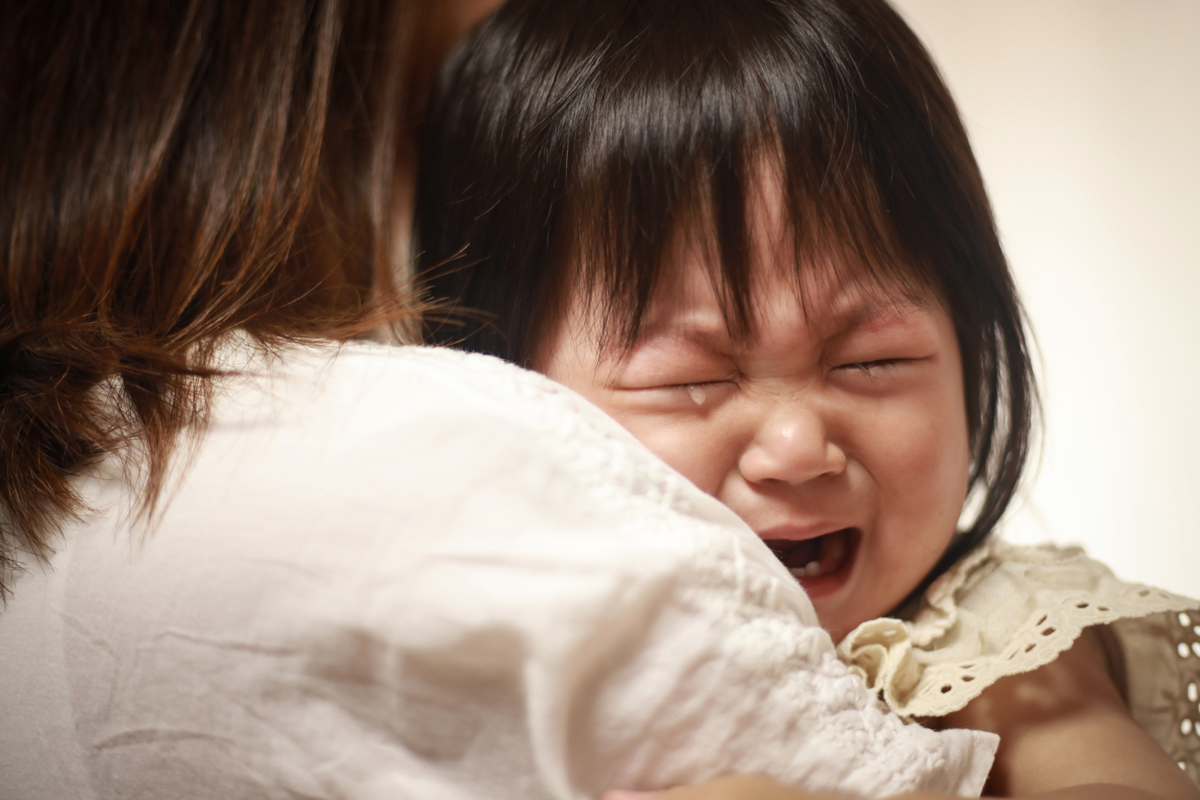Child care choices always rank high in parent discussion and anxiety. Does day care generate behavior problems? Does having a nanny hurt your bond? There are calls, often but not always from the political right, for more women to stay home with their children. I have heard, more than once, the view that “Of course it’s fine to work, but you should be willing to acknowledge this is bad for your children.” (I’m not.)
There are many aspects to these questions; too many for one post. But one claim that has come up more recently is the idea that “research says” that day care is bad for children. More often than not, this is followed by a discussion of one particular study from Quebec. The reason this study is often brought up is because of the strength of its claims and how it stacks up against the rest of the literature.
Here, I’ll talk about that one study and start by talking about the bigger picture in this literature. It’s long and technical, and that’s kind of my point. The best way to understand the arguments here — and how that might impact your decisions as a parent — is to dive into the data. Let’s go!
What is the existing research on child care?
No study lives alone. Especially not on a topic people care about, which is definitely true of this one. There are many, many studies on how child care and early childhood education can impact childhood outcomes.
The simplest way to look at the impact of child care on child outcomes is to get data on child care choices and later child outcomes and compare them.
The largest and best-known study to do this is one out of the National Institute of Child Health and Human Development (NICHD). This study followed roughly 1,000 children over time and was designed to evaluate the impacts of various types of child care on child development.
The authors do a number of things with this data. One is that they compare children in center-based child care centers to those with other arrangements — family members or babysitters. When they do this, they find that use of child care is associated with slightly higher cognitive outcomes for enrollment after 18 months and slightly lower before 18 months. Overall — as in, if the child was enrolled for the entire period — the impact on cognitive outcomes is positive. They find slightly negative outcomes on behavior, especially for lower-age enrollment. Both sets of effects are, again, fairly small and fade substantially or completely by later childhood. Overall, the impacts of child care are much smaller than the impacts of other aspects of the home environment.
The study also finds that higher-quality day care — as measured by whether providers are responsive to children, whether they read and talk to them, whether they hit them (this is very bad), and whether they respond to basic needs like diapering and feeding — is associated with better outcomes. This is not surprising. An important note is that when we say “high-quality day care” in a study like this, it doesn’t mean “fancy.” It’s about how the adults interact, not about whether the snacks are organic.
This is a good study overall, but it’s not perfect. The main concern with this study’s approach is that it is difficult to fully adjust for differences across families that might influence both child care choices and later child outcomes. This is a standard problem of correlation versus causation.
The most direct way to get around this would be a randomized controlled trial. That’s not feasible in this type of setting; few parents would agree to randomize their child care approach, for a number of reasons. However, a number of studies have emerged that use variation in policy as a kind of randomization.
Looking at policy changes
The basic idea in any study of this type is that the change in policy will change behavior for otherwise similar individuals, so by comparing outcomes before and after, you can learn about the impact of the behavior.
There are two sources of policy variation that can be effectively used here.
First, researchers can do this by looking at variations in parental leave. There are a number of countries (not America, notably) that have changed their maternity leave policies over time. In some cases, this has meant extending leave from three or four months up to 11 months or more. When leave is extended in this way, use of early childhood child care declines. By comparing child outcomes before and after the leave extension, we can possibly learn something about child care impacts.
I talk about this literature in detail in Cribsheet; generally, this work finds little or no impact of extending parental leave beyond four months on children (parental leave before four months is beneficial).
The second approach is to exploit changes in access to early childhood care or education. Many countries, states, or cities have, over time, expanded the provision of universal or close to universal early childhood education. This includes access to early-life child care and access to slightly later care, closer to pre-K.
The Quebec study — which I promise I will get to below — is in this literature. But the literature is very large. There are studies in Norway, Denmark, Germany, Italy, Chile, Boston, and Tennessee. There is a famous set of papers about the Head Start program. (For an excellent summary of this literature, I liked the introduction of this paper, which itself focuses on an early childhood program in Germany.)
As is always the case when you’ve got a lot of papers, it can be hard to summarize.
One clear finding from data in the U.S. is that high-quality pre-K programs — like Head Start and the program in Boston — can improve outcomes for kids, both in the short and long term. There is also some evidence that lower-quality pre-K, like a program that has been under some scrutiny in Tennessee, may not deliver those outcomes.
Across countries, there is more data on child care policies that focus on early childhood. The evidence here also has nuance. Data from Germany shows positive impacts on motor and socioemotional skills. Data from Chile finds some positive impacts, but maybe also more negative impacts on adult-child interactions. A Norwegian program that generated more child care usage between 15 and 19 months improved later outcomes. On the flip side, there is a paper from Italy that suggests that attendance at child care dramatically lowers IQ. (For example, for the Italy paper, the effects in this paper are enormous, but I have some significant concerns about their first-stage graphs and their lack of a reduced-form graph on their regression discontinuity plots. This is a technical point.)
It’s hard to pull anything consistent out of this data, for a few reasons. First, this policy-based approach is good for causality, but it is a blunt instrument. We usually know very little about who is using child care, what the alternative child care arrangement was, or the details of the child care provided. Government-provided child care is likely to differ a lot in quality, and that’s generally unmeasured. Second, and somewhat more technically, in some of these cases, I am more skeptical of the methods, for reasons that are rooted in my own work in this space.
Summing it up
If forced to summarize the existing research, I think it would be fair to say that this data suggests that quality matters. Programs that appear to expand access to higher-quality child care are more positive than those that appear to expand access to lower-quality care. Closely related, when we enact policies that change child care choices, it matters what families move away from. If a government introduces a lower-quality but less expensive child care program and families move into that from a higher-quality program, that could have negative impacts on children.
In a sense, none of this is meaningfully different from the NICHD study I mentioned above. Quality matters. And overall, most of these effects are fairly small.
What does that Quebec study say?
Having this long lead-up to this one paper is important to me because it illustrates how much more complicated this is than could be covered in a 90-second Instagram reel or TikTok. We’re talking about a huge academic literature, crossing many different disciplines, with probably hundreds of studies and dozens of reasonably good ones, that do not always agree.
However, the study from Quebec is a part of this literature, so here are the details. Between 1997 and 2000, Quebec introduced a program that gave everyone access to highly subsidized child care at a low cost ($5 a day). The care was rolled out sequentially by age, starting with 5-year-olds and going down to infants. New centers were opened quite quickly, and the use of child care expanded. In general, the centers were evaluated as relatively lower-quality, perhaps in part due to the rapid expansion. Children younger than 2 were typically served in home-based centers, and those older than 2 in center-based care.
A 2008 paper evaluates the short-term program impacts. Using an existing survey, the authors compare child outcomes — notably, child behavior outcomes — for children in Quebec versus those in the rest of Canada, looking before and after the program. What they find is that relative to changes in the rest of Canada, children in Quebec fare worse after the program in parent-reported aggression in particular. They are also more likely to have been sick recently (and more likely overall). Maternal employment, meanwhile, goes up.
A later follow-up paper shows limited effects on test scores but some continued evidence of changes in aggression and possibly criminal behavior for boys. These effects are all on the small side.
There are some good aspects of this paper: the policy change is large and well-defined, and there is comparable data for Quebec and the rest of Canada to analyze outcomes. The paper also has some limitations. The size of the impacts is somewhat difficult to evaluate. Statistically, the paper has relatively little power — although there are a lot of children, the study really just compares Quebec to the rest of Canada over time, and that’s a limited comparison.
This is one paper. It evaluates one policy, a rapid scale-up of relatively inexpensive child care. It is an interesting policy evaluation. But it’s one piece of the puzzle, and there are a number of reasons why it’s not clear how much we can learn about our own complicated child care overall from this single study of Quebec.
As a final note: This paper does echo what we see in a variety of other settings, which is that children in care with other kids get sick more than those who are not. They seem to get sick less when they’re older, but in the short term, this is frustrating.
Closing thoughts
Child care choices are complex for almost every family. Most of us spend tremendous amounts of time thinking about the right care environment for our children — balancing income, work hours, our values, and our options. Part of what is so frustrating is that after all of that, you finally make a choice you’re happy with, and then someone shows up in your social media feed to tell you you’re doing a terrible job.
The bottom line from this literature is that day care is a great option. The decision about whether to use day care, or when, should involve thinking about the logistics that work for your family. Rather than focusing on whether day care is “good” or “bad” – it’s neither – you want to figure out what child care setup is optimal for your family structure.
If you do choose to use a child care center, pick one where the caregivers seem responsive and loving.
The bottom line
- Large U.S. data shows child care is linked to slightly higher cognitive outcomes and slightly worse behavioral outcomes, but these effects are small and fade by later childhood. Quality of care is the most important factor.
- Other studies show that expanding high-quality programs improves children’s outcomes, while expanding lower-quality care can have neutral or negative effects.
- A highly cited study found that Quebec’s rapid rollout of low-cost child care was associated with small increases in child aggression and illness. The program did raise maternal employment. The findings are often overstated and may not generalize to other contexts.
- Day care is neither inherently “good” nor “bad.” The right choice depends on your family’s needs, values, and options. If choosing day care, prioritize caregivers who are loving and responsive.















Log in
I know my experience isn’t data – but sending my baby to daycare at 6 months immediately illuminated the benefits for all. He LOVED the socialization that he’d never have gotten at home, the toys that were different from ours that he got to play with, and the group of women who loved and cared for him – basically the largest part of our village that society says we need!!
He’s now two and we recently moved – I assumed he’d just as happily go to his new daycare and was shocked and so upset that he sobbed at drop off the first two weeks. Well, now he has friends he talks about at home, he gets to play with them all day while also experiencing things like yoga and endless variations of art projects.
in what world is that a negative experience?! How would 24/7 with me, exhausted and overwhelmed, be better than this?!?!?!
How do you reconcile this conclusion with this article?
https://criticalscience.medium.com/on-the-science-of-daycare-4d1ab4c2efb4Childcare : what the science says | by criticalscience | Medium